ENGLISH
Sometimes there are films that feel like a poem. Sometimes there are films that are a poem. If you ask me for an example of the first sentence, I would talk about films like into the wild, but if you ask me for the second sentence, a film that really is a poem, then there is no other film that takes my mind that is not Araya, which for me is the best Venezuelan film ever made. A 1959 film, in black and white, directed by Margot Benacerraf and a before and after for the Venezuelan culture, being also a masterpiece wherever you look at it.
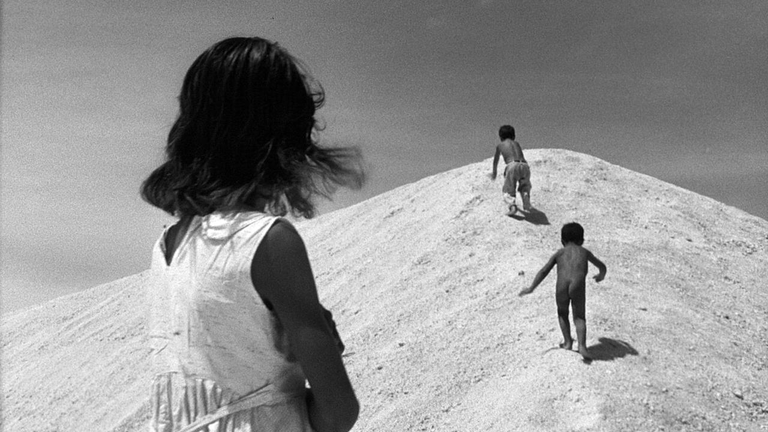

A monologue about Araya, a Venezuelan fishing village where salt was traded throughout the country and abroad, is almost the only thing we hear during a little more than 60 minutes of the film. An experience that is contemplated and hypnotizes you in several ways, and that left me in particular, with my mouth open from beginning to end, but to be fair, I have a little blinded judgment for being a Venezuelan film. And although the truth is that the film won awards in several festivals around the world, which means that it is much more than a good Venezuelan film, I know that many will look down on it for being from Venezuela, but the truth is that it is an incredible film from beginning to end, and it is something that any Venezuelan filmmaker or film student should see at some point in their lives.
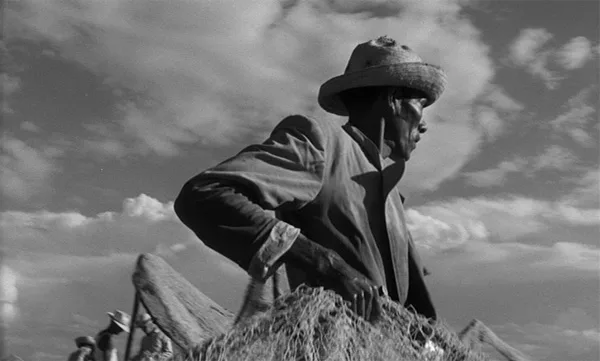

For my compatriots, my people here in Venezuela, beyond asking you if you know the film or not (by the way, if you don't know it and want to see it, you can get it on youtube), I want you to realize how important and against the current is that a woman has made such an important film in the 50's in the country. If by this time, there are few female artists making films in the country, how common was it for a woman to make films in the country more than sixty years ago? Not only was it something completely unthinkable, but it was also a barrier breaker, so I believe that Araya is not only art in film form, but it is also protest in film form, it is history, it is beauty and story, it is poem and also prose.
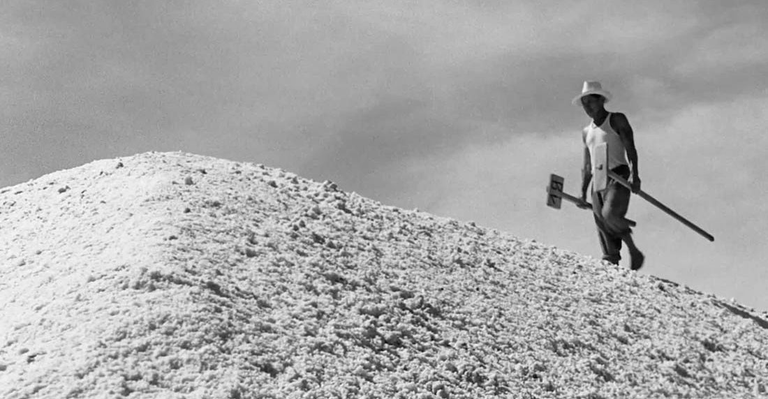

The day to day life of the people of Araya is told in a wonderfully captivating way in the film, but that is not the only thing the film tells. If at some point above I mentioned that the film was history, I wasn't just referring to the fact that the film made history within Venezuelan cinema, but that the film also shows us a part of our country's history, which is why I sincerely feel it serves so well in every possible way. Lastly, even though I already said it was on youtube, I know that this film, being so important for the country, is shown recurrently in national festivals throughout the years, so if you somehow manage to see it that way, I know it will be a whole new experience.
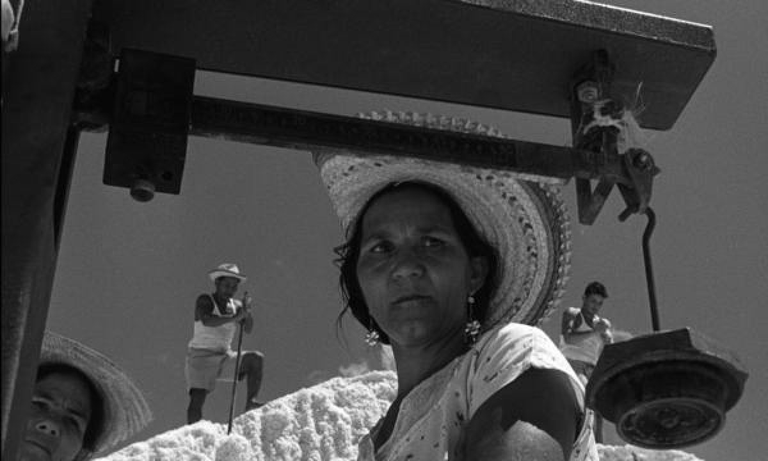

SPANISH
A veces hay películas que se sienten como un poema. A veces hay películas que son un poema. Si me preguntan por un ejemplo de la primera frase, hablaría de películas como into the wild, pero si me preguntan por la segunda frase, una película que realmente sea un poema, entonces no hay otra película que tome mi mente que no sea Araya, la que para mí es, la mejor película venezolana jamás hecha. Una película de 1959, en blanco y negro, dirigida por Margot Benacerraf y un antes y después para la cultura venezolana, siendo además una obra maestra por dónde se le vea.
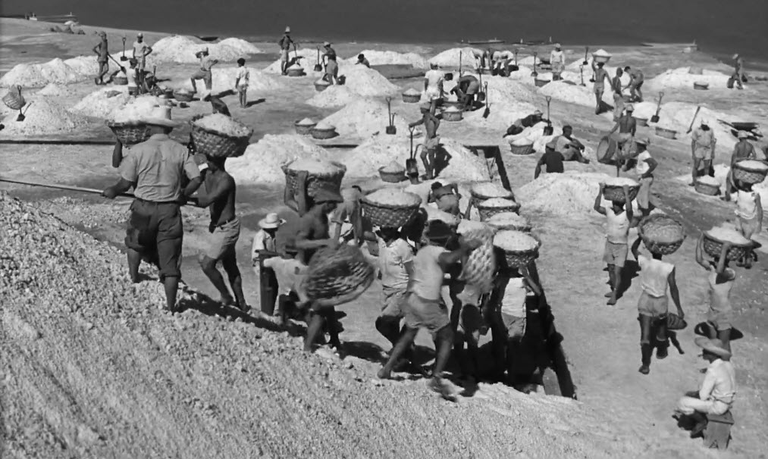

Un monologo sobre la Araya, un pueblo pesquero de Venezuela de dónde salía la sal que se negociaba por todo el país y por fuera, es casi lo único que escuchamos durante un poco más de 60 minutos que dura la película. Una experiencia que se contempla y te hipnotiza de varias formas, y que a mí en particular, me dejo con la boca abierta de principio a fin, pero para ser justos, yo tengo un poco del juicio cegado por ser una película venezolana. Y aunque la verdad la película fue galardonada en varios festivales a lo largo del mundo, lo que significa que es mucho más que una buena película venezolana, sé que muchos la menospreciaran por ser de Venezuela, pero la verdad es que es una increíble película de principio a fin, y es algo que cualquier cineasta venezolano o estudiante de cine debería ver en algún momento de su vida.
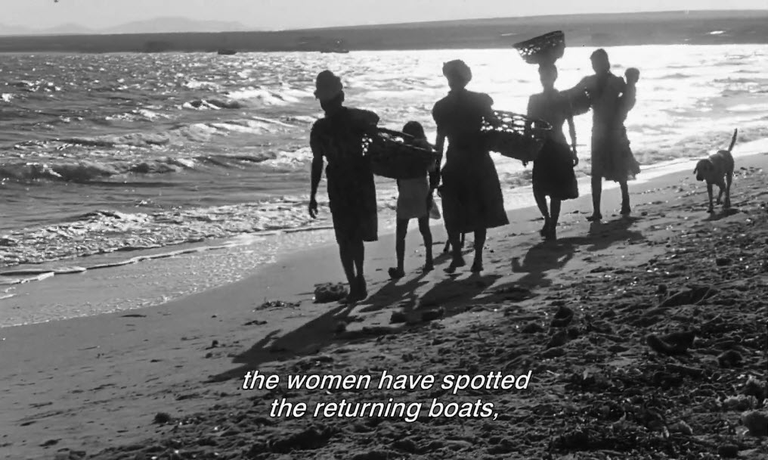

Para mis compatriotas, mi gente de aquí de Venezuela, más allá de preguntarles si conocen la película o no (por cierto, si no la conocen y la quieren ver, se consigue en youtube), quiero que caigan en cuenta de lo importante y contra corriente es que una mujer haya hecho una película tan importante en los años 50 dentro del país. Si para este momento, son pocas las artistas mujeres que se encargan de hacer cine dentro del país, ¿qué tan común era para una mujer hacer cine en el país hace más de sesenta años? No solo era algo completamente impensable, sino que además fue rompedor de barreras, por lo que creo que Araya no solo es arte en forma de película, sino también es protesta en forma de película, es historia, es belleza y cuento, es poema y también prosa.
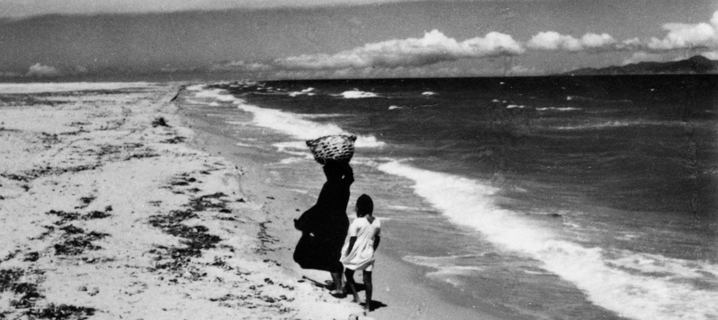

El día a día de la gente de Araya es contado de forma maravillosamente cautivadora en la película, pero eso no es lo único que cuenta la película. Si en algún momento arriba mencioné que la película era historia, no me refería únicamente a que la película hizo historia dentro del cine venezolano, sino que la película también nos muestra una parte de la historia de nuestro país, por lo que sinceramente siento que sirve tan bien en todas las formas posibles. Por último, a pesar de que ya dije que estaba en youtube, sé que esta película, al ser tan importante para el país, la pasan de forma recurrente en festivales nacionales a lo largo de los años, así que si de alguna forma consiguen verla de esa manera, sé que será toda una experiencia nueva.
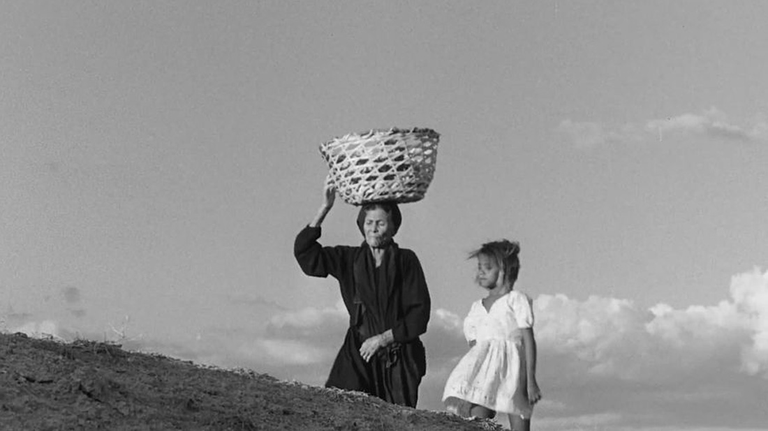

Considera unirte a nuestro trail de curación en HIVEVOTE haciendo click en la imagen inferior, Les agradecemos todo el apoyo.
A todos los artistas ahí afuera en HIVE, si alguna vez se sienten solos y perdidos, unanse al canal de discord de Bokura No Digital World



Posted using CineTV
@tipu curate 8
Upvoted 👌 (Mana: 0/75) Liquid rewards.